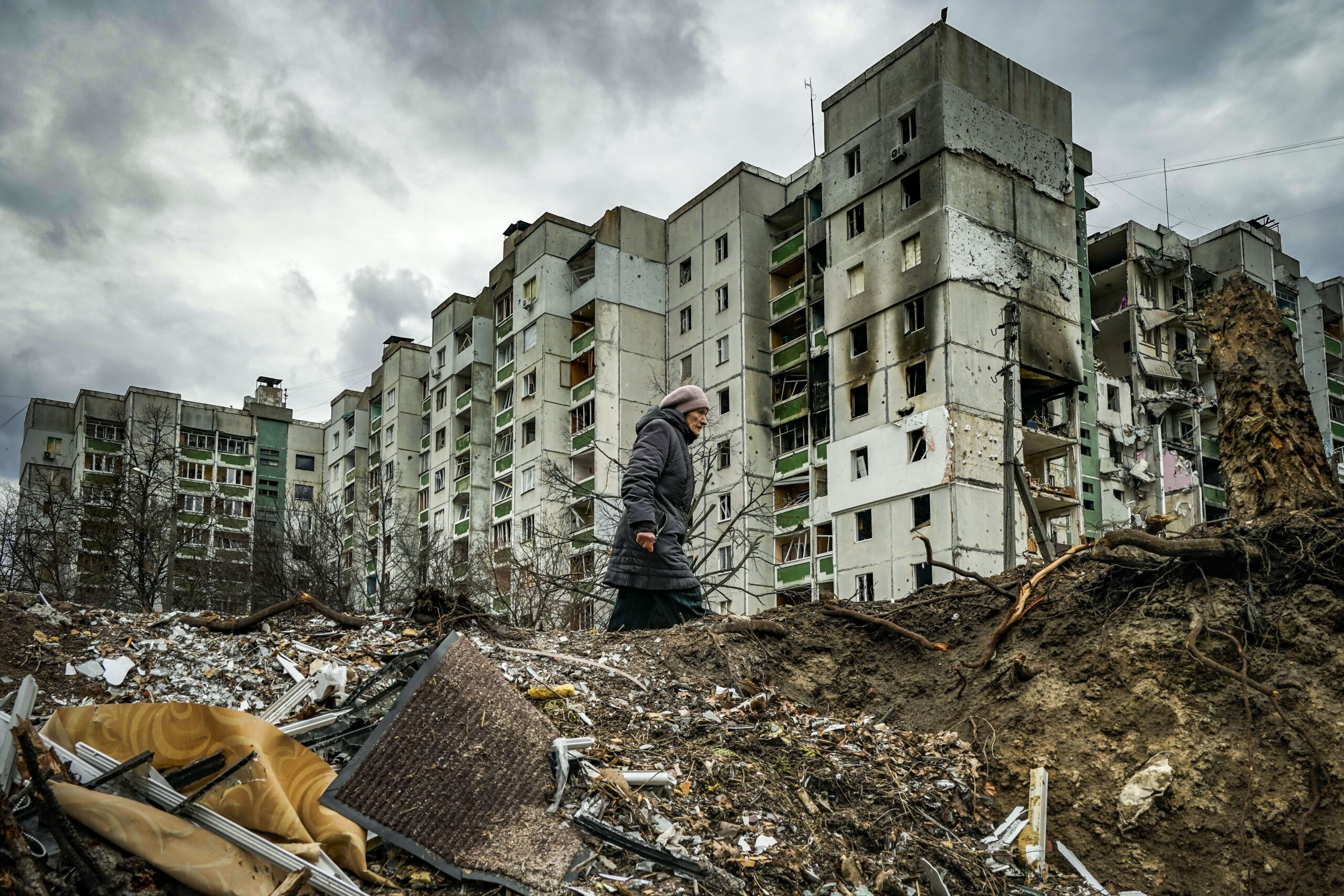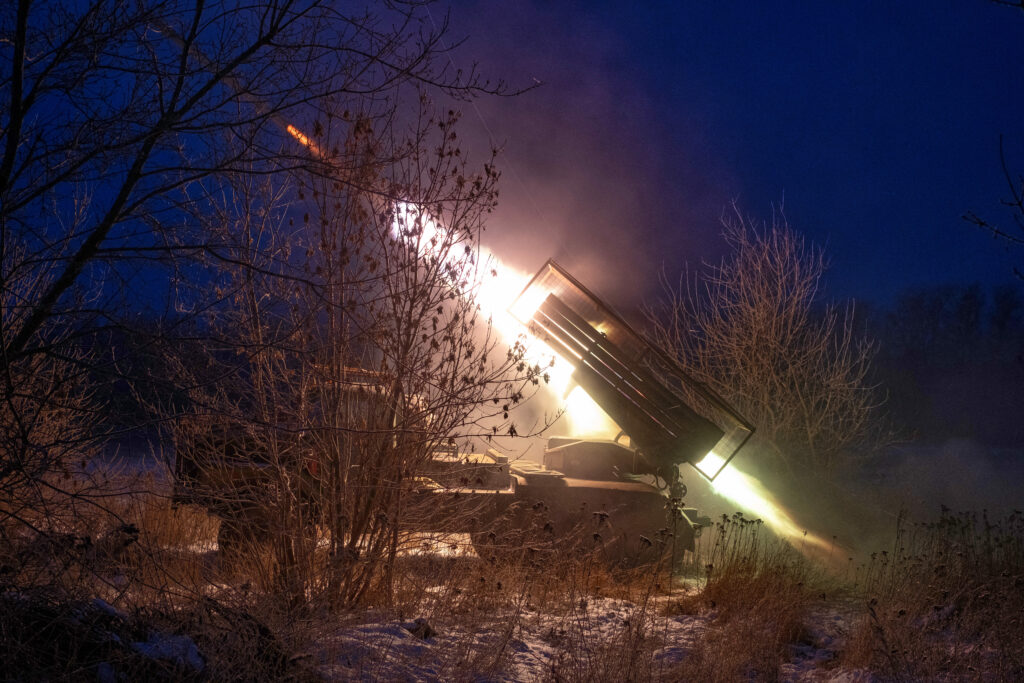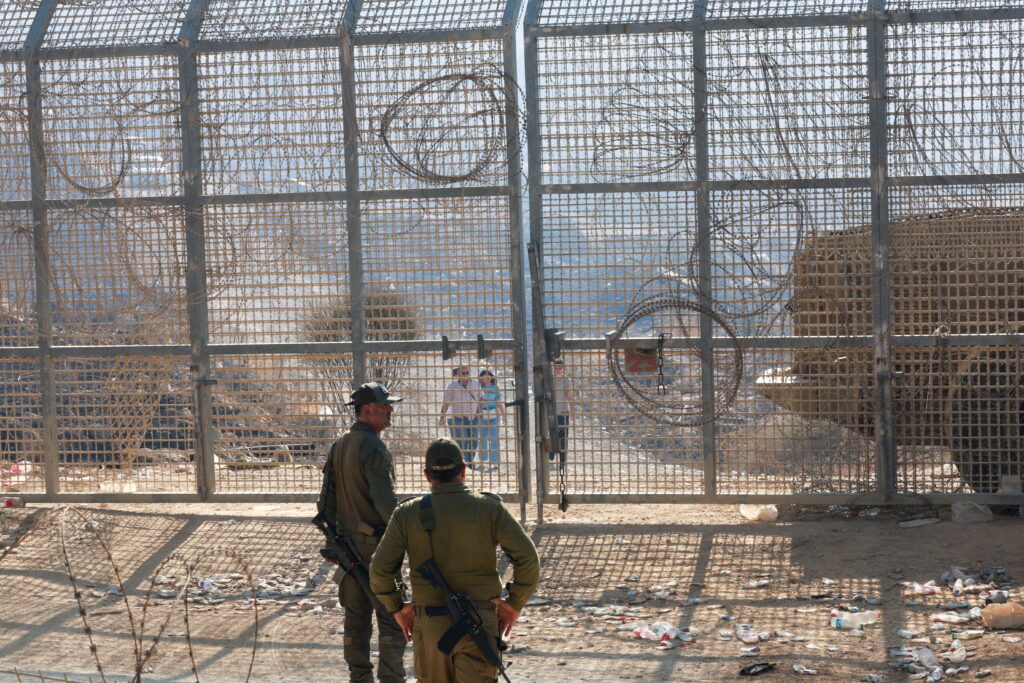Russia launched its military operation in Ukraine more than a month ago. It seems the whole world today is transfixed by live coverage of battles in Mariupol or Kharkiv or horrified by the killings of civilians in towns like Bucha. And what about Russians? What do ordinary citizens think about what is happening and what effect does the fighting have on the ratings of the Russian authorities?
Support is high but incoherent
Recent polls show most respondents support the actions of the Russian armed forces in Ukraine. 53% of Russians — «definitely support» it. Another 28% «moderately support». About 14% of Russians do not support it, and while 6% find it difficult to answer.
Thus about half of the country’s population can be attributed to the group of unconditional support: they do not doubt the correctness of what is happening, and they dismiss criticism of the Russian leadership and the armed forces; what is happening inspires them with a sense of pride for the country. It is in this group that judgments about what is happening are most categorical, here the respondents are more willing to present what is happening as a «fight against nationalists», as a «forced measure», «preemptive strike», «defense against NATO». They practically do not question the reports of the state media, and willingly believe the explanations of Vladimir Putin, whose support in this group is the highest. Respondents in this category themselves emphasize that what is happening is precisely a «special operation», because «we are not seizing anything — we are liberating them from the Nazis, from the fascists», because otherwise «they would have simply bombed {Donbas} completely and that’s it … there would be no living people left», «because Vladimir Vladimirovich calls it that, I believe him.»
Respondents who «moderately support» the actions of the Russian military are more qualified; there are certain reservations: compared to the group of confident support, here the feeling of anxiety, fear and horror from what is happening is twice as high, the feeling of pride is noticeably lower. For them, the special operation is motivated mainly by the desire to protect the Russian-speaking population. They follow what is happening twice as rarely, support for the authorities is somewhat lower here, as well as interest in politics. For respondents from this group, the following moods are typical: «I would really not want to support, but I have to support, this is already a hopeless situation … Lugansk and Donetsk have been bombed for 8 years … I would not like there to be a war, I would like the authorized people to decide this problem without war … but it doesn’t work» one of the participants in the March study commented on her answer.
By analogy with electoral studies, a significant part of these respondents can be attributed to the so-called «swamp» which are characterized by less than clear convictions, which are more inclined to join the prevailing public opinion, the official line of the party on this and other issues. Some of them join the majority «just in case». However, to say that they all «actually» think differently, are in opposition and are simply afraid to answer, would be wrong. Albeit with reservations, but this is support for state policy.
Among the opponents of the «special operation» there are disproportionately more young people (though it cannot be said that they are only young people), residents of Moscow and major cities, readers of Internet sites and Telegram channels. There are noticeably fewer older people, TV viewers, few supporters of Vladimir Putin. This is the same part of Russian society that was less dependent on the state, was critical of the Russian government, voted against amendments to the Constitution in 2020, supported the opposition and took part in protests in 2021, was better integrated into the global world, went on vacation to Europe, better related to the West. It can be said that in relation to the war those contradictions that have been noticeable in Russian society for a long time have reappeared.
For those who disagree, what is happening in Ukraine is often tantamount to a catastrophe: they talk about the inadmissibility of human casualties, the death of civilians, destruction; condemn interference in the affairs of another state. From young respondents, in particular, one can often hear about the principled rejection of any military action. The conflict with Ukraine and the West is perceived here as a collapse of hopes for the future, for the development of the individual and the country as a whole, as cutting them off from the global world. It is no coincidence that among the new wave of emigrants there are so many young, politically active, English-speaking Russians whose work was not connected with the state.
Persistence of a worldview
The available data in dynamics show that initially support for the special operation was less — at the level of two-thirds of the population (65−68%); up to a quarter of the respondents expressed their disagreement. It is important to emphasize that the main contours of today’s attitude to what is happening were already formed by mid-February — even before the start of the armed conflict. By that time, three-quarters were convinced that the United States and Ukraine were to blame for the escalation; only a third of the respondents showed sympathy for Ukraine; Vladimir Putin’s approval rating stood at 71% in mid-February (it rose to 83% in March). The main gaps were already visible, which were not noticeable at the end of 21, when events were only gaining momentum. These same differences were clearly visible in the first polls about attitudes towards the «special operation».
These figures clearly show the ratio of parties that the polls of early March showed: two-thirds already agreed with the official interpretation of what was happening and supported the «special operation», about a quarter did not. The changes that have taken place in public opinion over the past month are noticeable, but not so significant.
At least in part, this stability of ideas is explained by the fact that information about what is happening in Ukraine falls on the long-established ideas of respondents about how the world order works in general. These ideas were formed over the years under the influence of political sympathies, life experience and the information sources used by the respondents. Thus, for the majority of respondents, especially for representatives of the older generation, there is no doubt that the West, led by the United States, has long been trying to weaken Russia and surround it with military bases. The Russian-Georgian war of 2008, the conflict with Ukraine in 2014, the military operation in Syria and the current «special operation» were perceived through the prism of the Russian-American confrontation. It is no surprise that young people and Internet users in the largest Russian cities share such ideas much less frequently.
News from Ukraine that fits into the existing worldview is easily taken on faith. Everything that contradicts — no matter how terrible the information — is categorically discarded as lies and hostile propaganda. As the international conflict deepens, the logic of friend or foe in relation to the Russian and foreign media becomes aggravated to the maximum. Characteristic are the words of focus group participants who support the «special operation»: «If you watch foreign channels, then in the place of an ordinary American … if I watched this, I myself would say: what is Russia doing? That is, there is such disinformation!»; «Well, Echo of Moscow was closed… After all, it’s impossible to listen to this dirt… It’s like some kind of zombification.» Against the backdrop of the conflict, trust in Russian state channels is growing, because «after all, we really need official information now.» We have already observed a similar situation in 2014. Under such conditions, the attitude to what is happening turns out to be quite stable and can hardly change quickly. The blocking of independent media, the ban on criticism of the Russian military does not so much change public sentiment as it reinforces already established perceptions (after all, a quarter of Russians already use VPNs).
Crimea Effect 2.0.
Throughout March, there was a consolidation of public opinion: support for the «special operation» increased, and the number of its critics decreased. As we expected at the beginning of the year, the «special operation» led to the strengthening of the ratings of state institutions. The approval of the president, the government, the Duma, and the party in power increased (the ratings of the other parties did not change significantly). All this is also similar to the situation in 2014. Then, immediately after the annexation of Crimea, the ratings of the first persons of the state quickly went up, confidence in the future and in the right direction of development of events grew.
Psychologists explain that in a situation of external threat, international pressure, sanctions, defense mechanisms are activated: the growth of political trust and the justification of the social system — the «rallying around the flag», the alienation of moral responsibility through dehumanization («these are crazy rulers of other countries»), attribution of guilt («they themselves are to blame»), shifting responsibility («we have nothing to do with this, we didn’t make that decision»). As our research shows, the notion that «we can’t change anything» is common among both supporters and opponents of the «special operation». This feeling allows you to step back from what is happening, begin to adapt to the deteriorating economic conditions, go even deeper into private life, shield yourself from information about human casualties and destruction.
Let us reiterate that the growth of ratings began at the end of last year against the backdrop of escalating international tensions. So, if the actions of Vladimir Putin as president in November of 2021 were approved by 63%, then by mid-February already 71%, in March — 83%. At the same time, support for the regime and support for a special operation are practically the same thing. Among the supporters of Vladimir Putin, almost 90% approve of the special operation, among those critical of the president, about a third of the respondents, that is, three times less.
The president’s support is heterogeneous, as is the support for the «special operation». Thus, about 45% «unconditionally approve» Vladimir Putin’s actions; compared to January, their number has doubled. Almost the same number (38%) «rather approve» of the president’s work, and this support is not so strong. But the situation of international conflict forces people to take sides. You can often hear such explanations: «Now you have to approve, in wartime you can’t be against him!»; «In general, I don’t agree with everything… I receive a small pension, we live in conditions… many benefits do not reach us… but Putin is pursuing the right policy, because there are intrigues against Russia around». It is precisely the situation of international conflict, the growing pressure on Russia from Western countries, the imposition of new sanctions that, like eight years ago, leads to the rallying of the majority of the population around the country’s leadership. Of course, there are those who declare their support «just in case.»
However current moods are different from that of 2014. Rising ratings today is not accompanied by euphoria. Russian society experienced a whole range of positive feelings about the annexation of Crimea: pride in the country, a sense of the triumph of justice and joy; only 3% spoke about anxiety and fear then. Today, feelings are clearly mixed. Despite the fact that in March «pride for the country» prevailed among the respondents, especially in the group of unconditional support. About a third of Russians experienced «anxiety and fear,» including supporters of what is happening (albeit to a lesser extent). Only marginalized groups experience joy and inspiration from what is happening in Ukraine. But these sentiments do not affect the support figures for the leadership.
About the fear of participating in surveys
The high levels of support for the «special operation» and the Russian leadership have already given rise to debate about how trustworthy these numbers can be. In the context of pressure on those who disagree, the adoption of a law on liability for discrediting the armed forces, and so on, say the critics of the polls — fear and unwillingness to participate in the polls have greatly increased in Russian society over the past month. Our research does not yet confirm this.
One of the important indicators of the quality of opinion polls is the reachability or the proportion of successful interviews. To determine this indicator in our research, we use the methodology of the American Association of Public Opinion Researchers (AAPOR). Our calculations show that over the past months this indicator has not changed either in door-to-door or telephone surveys. The situation in the field is sometimes nervous, there were even isolated cases of conflicts between the respondent and the interviewer (especially if they have different views on what is happening), but the work continues.
Our experience shows that it is difficult to recruit the youngest respondents in surveys — in telephone surveys, we have to set additional quotas. However, this is also not a new phenomenon, and weighing survey results by sex, age and education helps correct the effect of underrepresentation of young people. In addition, the changes in public opinion that have taken place over the past month, although noticeable, have not fundamentally changed the existing alignment of preferences and understanding of events. It is premature to talk about a sharp increase in the fear of respondents to take part in surveys. We need to carefully monitor how the situation develops in the future.
Interesting attempts to assess the sincerity of the respondents with the help of survey experiments. However, the interpretation of their results should be approached with caution, and additional studies are needed. At first glance, the figures obtained as a result of such experiments coincide with the indicators of unconditional support for the «special operation». But this does not mean that «qualified support» is a false statement by the respondents. As shown above, there is a whole set of factors that make people join the majority opinion. Reducing everything to fear would be a gross oversimplification. Moreover, don’t look in polls for an answer to what people «really» think. Surveys record only what respondents are willing to share with the interviewer — public attitudes that reflect how respondents are ready to behave in public.










